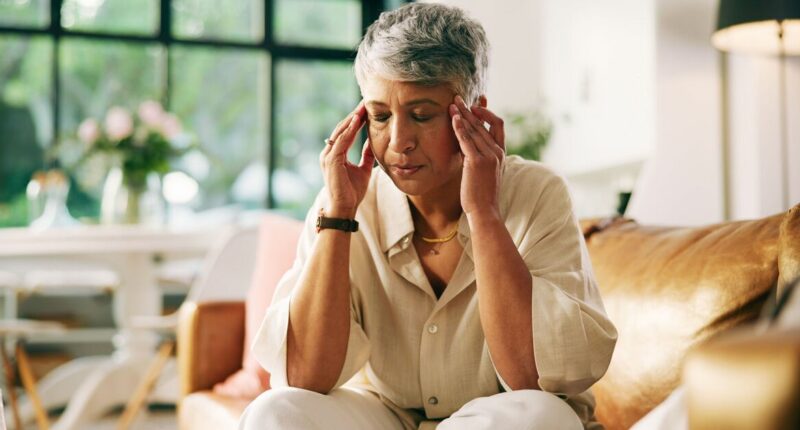Share this @internewscast.com
Healthcare professionals are urging individuals to adhere to a critical 10-day guideline if they contract the coronavirus. Although recent weeks have seen a surge in cases, newly released data indicates a slight decline in infection rates.
The UK Health Security Agency (UKHSA) shared in an update, “COVID-19 activity has shown a modest decrease, maintaining medium levels of circulation. The positivity rate in hospital environments fell slightly, with a weekly average of 12 percent compared to the previous week’s 13.1 percent.”
Hospitalization rates for individuals over 85 remain significantly high, though stable, recorded at 6.23 per 100,000, a notable decrease from the prior week’s 47.29 per 100,000.
Even though the number of cases has dropped compared to last week, there are measures you can take to help curb the virus’s spread. Consequently, the NHS has outlined specific guidelines for those who receive a positive test result.
The NHS states that most individuals do not require a COVID-19 test if they exhibit symptoms. However, for those who test positive, following the advised 10-day rule is crucial.
The advice reads: “Refrain from interacting with individuals at higher risk of severe illness, such as those with compromised immune systems, for 10 days following your test date.”
They also recommend that you:
- Try to stay at home and avoid contact with other people for 3 days after the day the test was taken if you or your child are under 18 years old – children and young people tend to be infectious for less time than adults, The Mirror reports.
- Try to stay at home and avoid contact with other people for 5 days after the day you took your test if you are 18 years old or over
Symptoms
According to the NHS, COVID-19 symptoms can include:
- A high temperature or shivering (chills) – a high temperature means you feel hot to touch on your chest or back (you do not need to measure your temperature)
- A new, continuous cough – this means coughing a lot for more than an hour, or three or more coughing episodes in 24 hours
- A loss or change to your sense of smell or taste
- Shortness of breath
- Feeling tired or exhausted
- An aching body
- A headache
- A sore throat
- A blocked or runny nose
- Loss of appetite
- Diarrhoea
- Feeling sick or being sick
“The symptoms are very similar to symptoms of other illnesses, such as colds and flu,” the NHS says. “Most people feel better within a few weeks, but it can take longer to recover.
“For some people, it can be a more serious illness and their symptoms can last longer.” Just last month, the UKHSA pointed out that two of the most dominant variants of the virus have been the XFG variant, otherwise known as Stratus, and NB.1.8. 1, known as Nimbus.
The UKHSA warned that these strains may cause a hoarse voice or “particularly painful” sore throat alongside other typical Covid symptoms.
To help ease symptoms, the NHS says you should:
- Get lots of rest
- Drink plenty of water to avoid dehydration (your pee should be light yellow or clear)
- Take paracetamol or ibuprofen if you feel uncomfortable
- Try having a teaspoon of honey if you have a cough – do not give honey to babies under 12 months
- Try turning the heating down or opening a window to help with breathlessness
- Breathe slowly in through your nose and out through your mouth, with your lips together like you’re gently blowing out a candle
- Sit upright in a chair to help with breathlessness
- Relax your shoulders, so you’re not hunched to help with breathlessness
- Lean forward slightly – support yourself by putting your hands on your knees or on something stable like a chair to help with breathlessness
- Not lie on your back if you have a cough – lie on your side or sit upright instead
- Not use a fan to cool your room as it may spread the virus
- Try not to panic if you’re feeling breathless – this can make it worse
For more information, visit the NHS website.












